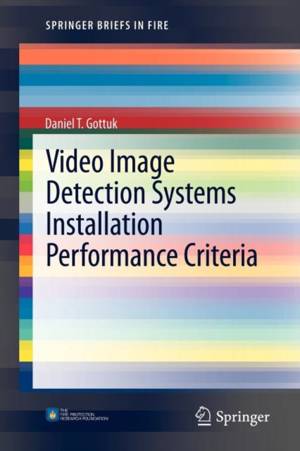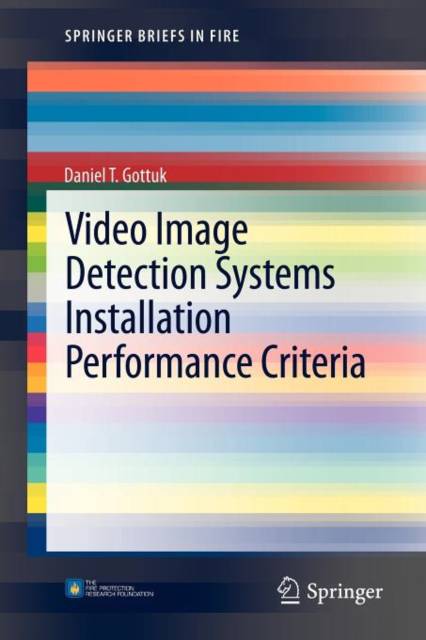
Bedankt voor het vertrouwen het afgelopen jaar! Om jou te bedanken bieden we GRATIS verzending (in België) aan op alles gedurende de hele maand januari.
- Afhalen na 1 uur in een winkel met voorraad
- Gratis thuislevering in België vanaf € 30
- Ruim aanbod met 7 miljoen producten
Bedankt voor het vertrouwen het afgelopen jaar! Om jou te bedanken bieden we GRATIS verzending (in België) aan op alles gedurende de hele maand januari.
- Afhalen na 1 uur in een winkel met voorraad
- Gratis thuislevering in België vanaf € 30
- Ruim aanbod met 7 miljoen producten
Zoeken
Video Image Detection Systems Installation Performance Criteria
Daniel T Gottuk
€ 60,95
+ 121 punten
Omschrijving
Computer processing and image analysis technologies have improved substantially over the course of the past decade. This rapidly advancing technology along with the emphasis on video surveillance since 911 has propelled the development of effective video image detection (VID) systems for ?re. Fire protection system designers initially employed these VID systems for use in large facilities, outdoor locations and tunnels. However, video-based detection is being used for a broadening range of applications [e. g., 1]. For example, these systems are c- rently installed in electrical power plants, paper mills, document storage facilities, historic municipal buildings, nuclear research facilities, automotive plants, wa- house/distribution centers, and onshore and offshore oil platforms. The 2007 edition of NFPA 72, National Fire Alarm Code [2], recognized the use of VID systems for ?ame and smoke detection. Although recognized, there is limited prescriptive installation and use requirements and there is a general desire by many for the development of performance criteria that ultimately could be utilized for the design of systems or the creation of standards. Since the underlying VID technology and development of standard and network-based camera systems are in a period of fairly rapid advancement [3-5], it is not possible to de?ne a comprehensive set of stand-alone prescriptive requirements. The performance of VID systems depends on both the video hardware and the software algorithms; there is no basic underlying principle, such as there is for ionization or pho- electric detection for smoke detectors. Consequently, performance-based inst- lation and operation requirements are needed.
Specificaties
Betrokkenen
- Auteur(s):
- Uitgeverij:
Inhoud
- Aantal bladzijden:
- 56
- Taal:
- Engels
- Reeks:
Eigenschappen
- Productcode (EAN):
- 9781461442011
- Verschijningsdatum:
- 2/06/2012
- Uitvoering:
- Paperback
- Formaat:
- Trade paperback (VS)
- Afmetingen:
- 156 mm x 234 mm
- Gewicht:
- 104 g

Alleen bij Standaard Boekhandel
+ 121 punten op je klantenkaart van Standaard Boekhandel
Beoordelingen
We publiceren alleen reviews die voldoen aan de voorwaarden voor reviews. Bekijk onze voorwaarden voor reviews.









